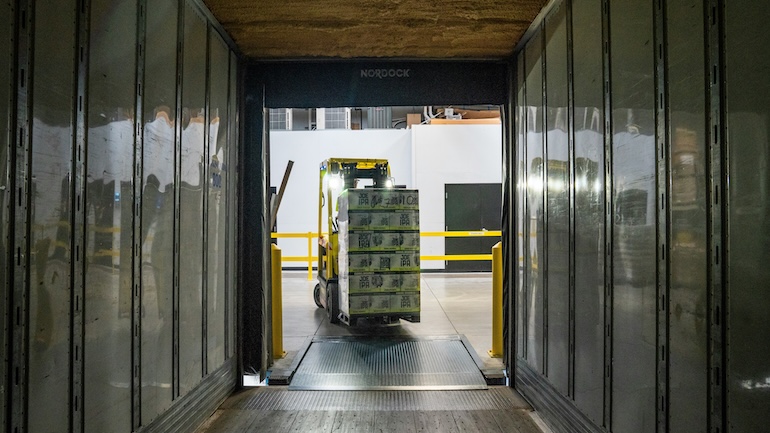
President Donald Trump has said that new semiconductor tariffs will be announced after an investigation into the issue is completed.
His statement contradicted U.S. policies disclosed over the weekend that exempted semiconductors, computers and memory chips—news that caused a momentary rally in tech stocks.
It’s still possible that some technology hardware will be exempted – perhaps even some semiconductors – but the president declined to specify.
“You have to show a certain flexibility. Nobody should be so rigid,” he said to reporters on Air Force One. “We wanted to uncomplicate it from a lot of other companies, because we want to make our chips and semiconductors and other things in our country.”
Trump’s goal with tariff policy, in addition to reshoring manufacturing, appears to be national security, and to that end he announced a wide-ranging probe into trade policies. As he posted on Truth Social, “We are taking a look at Semiconductors and the WHOLE ELECTRONICS SUPPLY CHAIN in the upcoming National Security Tariff Investigations.”
Clearly, U.S. tariff policy is in a state of rapid flux, and tariffs for semiconductors spark as much concern as any trade goods. Semis drive artificial intelligence (AI) growth, which is expected to revolutionize the business sector. Furthermore, AI is central to the high stakes competition between the U.S. and China. So it’s no surprise that chip tariffs are a heavily freighted topic that is prompting deep concern—and apparently considerable indecision—in the Trump administration.
It’s also causing some mixed messaging among Trump administration officials. Howard Lutnick, U.S. Commerce Secretary, said on ABC’s This Week on Sunday that semiconductors would soon be hit with new tariffs. Lutnick, in an effort to clarify the president’s stance, noted that tech gear like smartphones and computers are “exempt from the reciprocal tariffs, but they’re included in the semiconductor tariffs, which are coming in probably a month or two.” This is a somewhat different message from the president’s focus on “flexibility” and the expectation of an announcement within the week.
The Trump administration’s goal of reshoring manufacturing faces major challenges in the tech sector. First, of course, is the problem of labor costs. The average assembly line worker in Foxconn plants in China earns approximately $300 a month, based on a 160-hour work period. That figure is far underneath the federal minimum wage.
The challenge with semiconductors in particular is the complex nature of the global supply chain. “The main problem is that Trump’s strategic goals are incompatible with the short term realities of the supply chain,” said Richard Gordon, vice president and practice lead of Semiconductors at The Futurum Group.
The problem, he explained, is that the U.S. is not self-sufficient at many points in the semiconductor and electronics supply chain and Trump doesn’t “hold the cards.” He noted that most of the raw materials for chips come from China, the bare wafer production is done in Asia and Europe, EUV lithography tools are dominated by the Dutch company ASML, and advanced packaging equipment is produced largely in Europe. As a result, Trump will “have to constantly carve out ‘exemptions.’
“Plugging those gaps isn’t going to happen overnight, if ever.”
Whatever the challenges involved, Jamieson Greer, a Trump administration trade representative, said he has hopes for progress. “My goal is to get meaningful deals before 90 days, and I think we’re going to be there with several countries in the next few weeks,” he told on CBS’s Face the Nation. However, Greer said that there is no call scheduled between Trump and Chinese President Xi Jinping on tariffs. “The only reason we’re really in this position right now is because China chose to retaliate,” he said.

